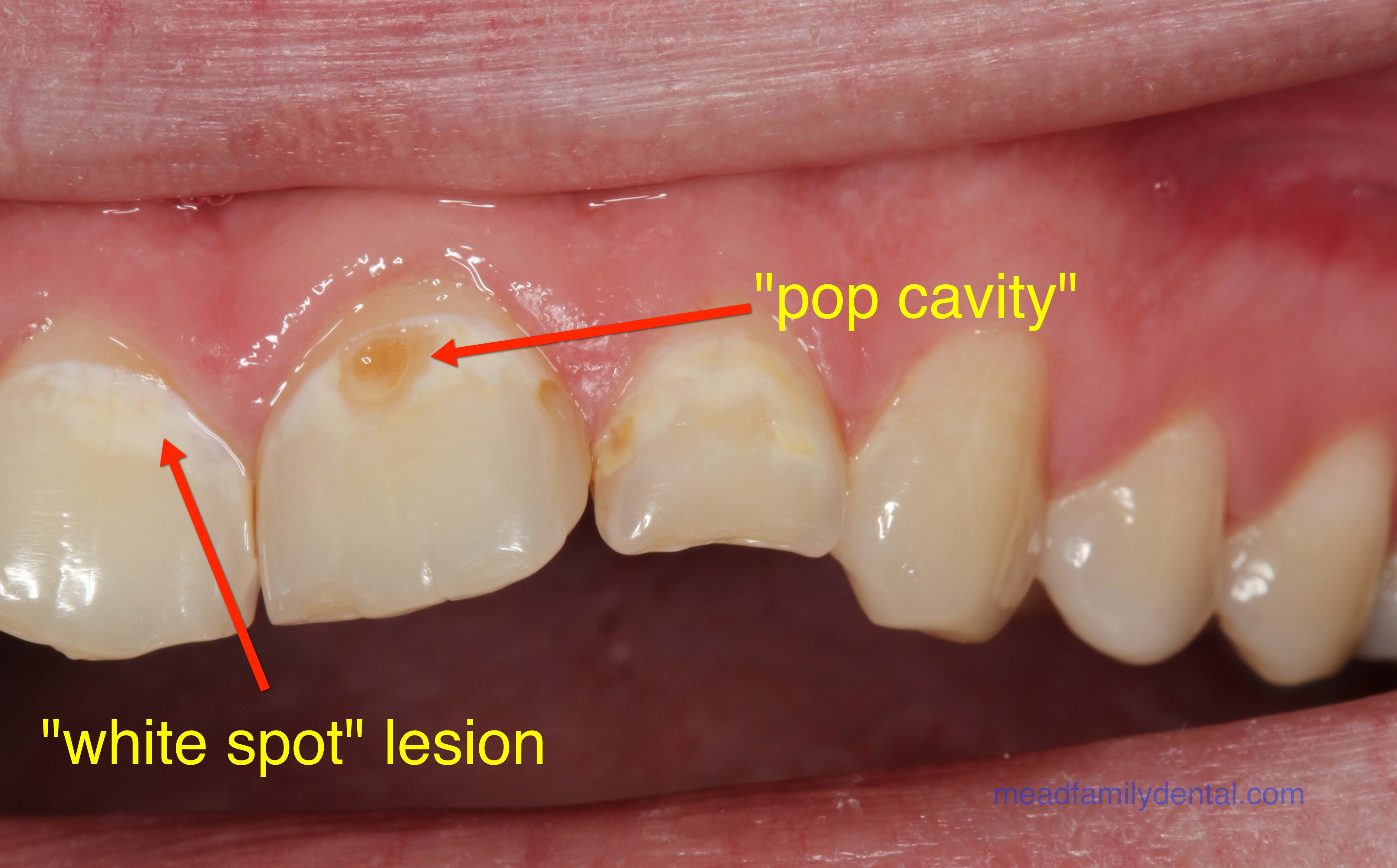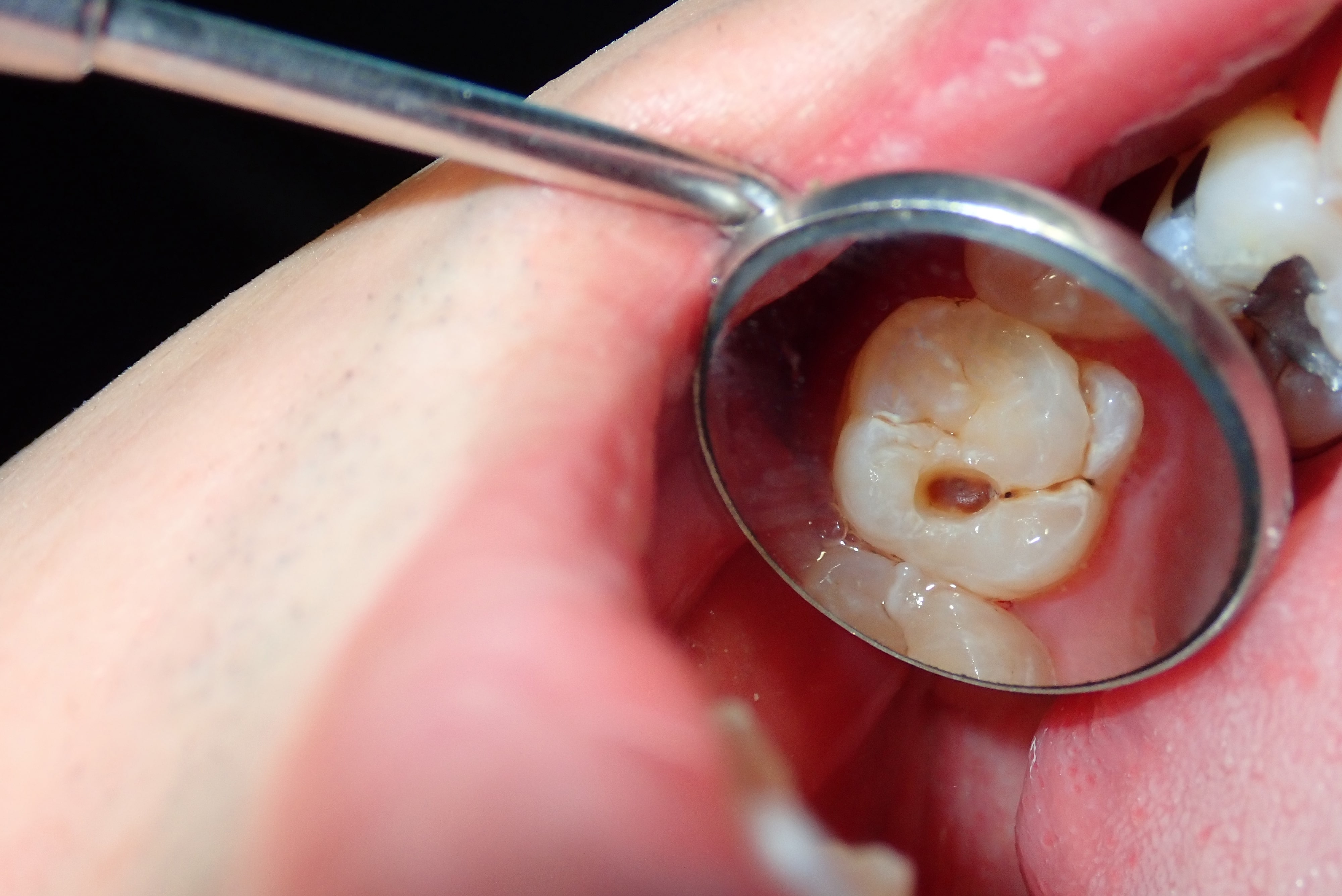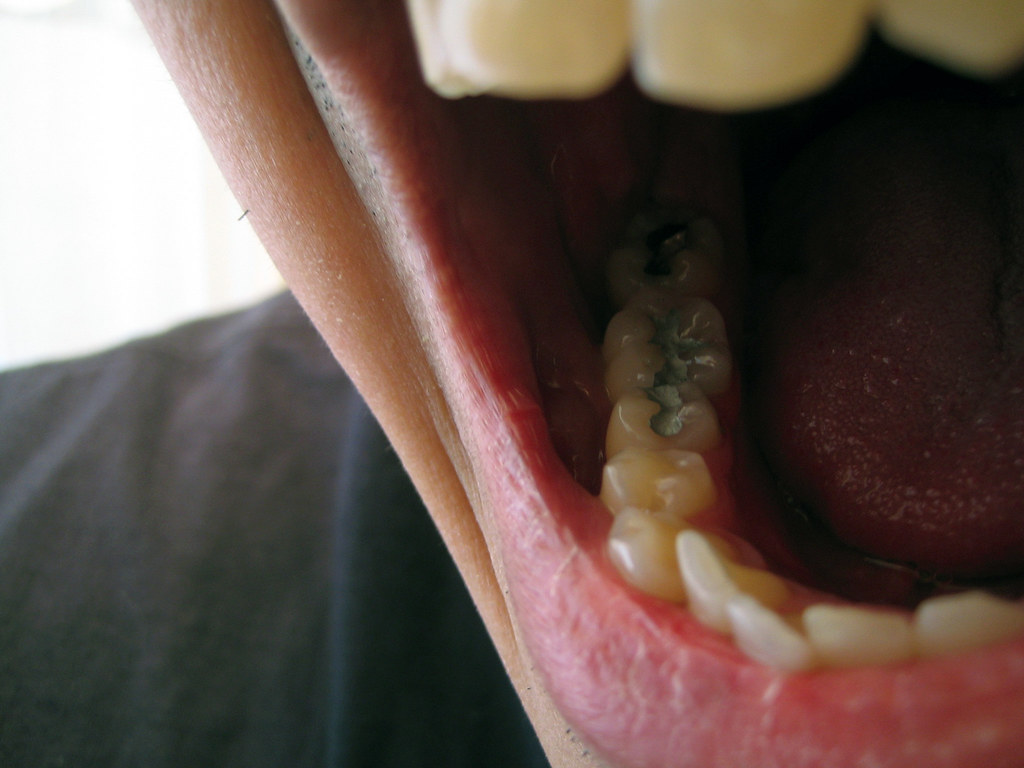Can A Cavity Form In A Week
Can A Cavity Form In A Week - A person doesn’t just get a cavity overnight. You probably know that a dental cavity is a hole in a tooth. They occur when specific types of bacteria in your mouth produce acids that eat away at the tooth enamel. In more serious cases, a cavity can result in a dental procedure called a root canal. A cavity is a small hole in your tooth that occurs when the hard outer layer of the tooth, called enamel, is damaged. (that’s why your dentist feels comfortable enough only examining you every 6 months.) Even from the section of the mouth. Web most cavities take weeks or months to develop. The byproduct of the metabolized sugar is acid and this acid can eat through the enamel. Once a cavity forms, it must be filled in order to prevent further decay.
Cavities form when acids in your mouth wear down (erode) your tooth’s hard outer layer ( enamel ). The sugars in foods like bread, beans,. Ad learn what causes cavities and how not to get them in the future. Cavities do not appear out of nowhere. Cavities can have a multitude of causes. The enamel is the hard, outer layer of your teeth that protects the inner layers from damage. It takes weeks, months or even years for a cavity to form. From a national research institute 0:00 / 2:30 this video describes how to reverse the tooth decay process and avoid cavities and mentions nidcr's related research. The good news is that there are symptoms of cavities that you can watch for, such as sensitivity to hot and cold, sensitivity to sweets, and tooth pain. But it’s not sugar by itself.
The number of cavities you have is not an indicator of how many you can fill. (that’s why your dentist feels comfortable enough only examining you every 6 months.) It typically takes months, or possibly even years, before the decay process has advanced to a point where it requires attention. But it’s not sugar by itself. Web can a cavity form in 2 months? Web overview cavities can form on the crown or root of your tooth. When is a cavity a cavity? Cavities can take weeks, months or even years to develop. Pit and fissure cavities occur on the chewing surface of your teeth. If you eat sugary foods with poor oral care your cavity will worsen significantly faster.
Get the Facts about Cavities with Your Dentist in Bothell
The decay process could take months, if not years, to progress to the degree where a tooth requires. You probably know that a dental cavity is a hole in a tooth. Web a cavity can form within a matter of minutes the moment after you eat something sweet, which has sugar or carbohydrates in it. The speed at which the.
How Long Can A Cavity Go Untreated And What Are The Risks?
Web most cavities take weeks or months to develop. Smooth surface cavities occur on the smooth sides of your teeth, while root cavities develop on the surface over the roots. Although you might not notice a cavity forming at first, it can eventually cause pain. Ad learn what causes cavities and how not to get them in the future. The.
Is this cavity reversible without drilling? No symptoms, just visual
The varying conditions means cavities. Web when is a cavity a cavity? When is a cavity a cavity? But did you know that a cavity is the result of the tooth decay process that happens over time? Web can a cavity form in 2 months?
How Do Cavities Form? The Hidden Causes Of Cavities You Need To Know
Web [comprehensive answer] how long does it take for cavities to form? Web cavities take time to form. It depends on various factors that influence tooth decay. Cavities do not form in a single day. A cavity is a hole in a tooth that develops from tooth decay.
Saginaw dentist talks about pop drinking and cavities Mead Family Dental
A person doesn’t just get a cavity overnight. Baby teeth have much thinner enamel than adult teeth. Web a cavity will not go away on its own. Cavities do not appear out of nowhere. Web it takes weeks, months, even years for a cavity to form.
What Does A Cavity Look Like? Smiles By Dixon
The sugars in foods like bread, beans,. And it’s not just sugar, like the stuff in candy or what you use to sweeten your coffee. Pit and fissure cavities occur on the chewing surface of your teeth. Move the location where people attest that they have filled in a. Web it takes weeks, months, even years for a cavity to.
How Much Does it Cost to Get a Cavity Filled? Dental Health Society
From a national research institute 0:00 / 2:30 this video describes how to reverse the tooth decay process and avoid cavities and mentions nidcr's related research. Once a cavity has formed, it will continue to grow larger until it is treated. Enamel is the hard protective outer layer of your tooth. Learn about common reasons here! The enamel is the.
How Long Can A Cavity Go Untreated And What Are The Risks?
Web a cavity can form within a matter of minutes the moment after you eat something sweet, which has sugar or carbohydrates in it. From a national research institute 0:00 / 2:30 this video describes how to reverse the tooth decay process and avoid cavities and mentions nidcr's related research. Web cavities are decayed areas of your teeth that develop.
How Does A Cavity Form? Port Pediatric Dentistry
That’s by no means a definitive point either. Cavities do not form in a single day. Cavities form when acids in your mouth wear down (erode) your tooth’s hard outer layer ( enamel ). Smooth surface cavities occur on the smooth sides of your teeth, while root cavities develop on the surface over the roots. Patients who take certain medications,.
Amalgam Fillings
Web in many cases, cavities can take years to form, however oral hygiene plays a large role in this. Web the two worked together on a paper about how to nudge people to be more honest on things like forms or tax returns. The varying conditions means cavities. The decay process could take months, if not years, to progress to.
Patients Who Take Certain Medications, Have Dry Mouth Or Certain Health Problems Are More Likely To Develop Severe Decay Quickly.
Web it takes weeks, months, even years for a cavity to form. You might not feel a cavity until it reaches the dentin or pulp. Once a cavity has formed, it will continue to grow larger until it is treated. When is a cavity a cavity?
Cavities Are A Common Dental Problem.
The length of time it takes for a cavity to form varies on a case by case basis because the conditions of your mouth can vary daily; They occur when specific types of bacteria in your mouth produce acids that eat away at the tooth enamel. Learn about common reasons here! Thus, young children can get a cavity in just a few months.
Web Cavities Take Time To Form.
If a cavity is caught early enough, you can actually reverse the damage to your child’s teeth. But it’s not sugar by itself. Cavities can have a multitude of causes. Pit and fissure cavities occur on the chewing surface of your teeth.
Web In Fact, Cavities Can Take Anywhere From A Few Weeks To Several Years To Develop.
In this blog post, we will discuss the three different types of cavities and the five stages of tooth decay. (that’s why your dentist feels comfortable enough only examining you every 6 months.) Web the short answer is that you can fill an unlimited number of cavities in your lifetime. How quickly a cavity worsens entirely depends on your oral care habits and what you eat.









